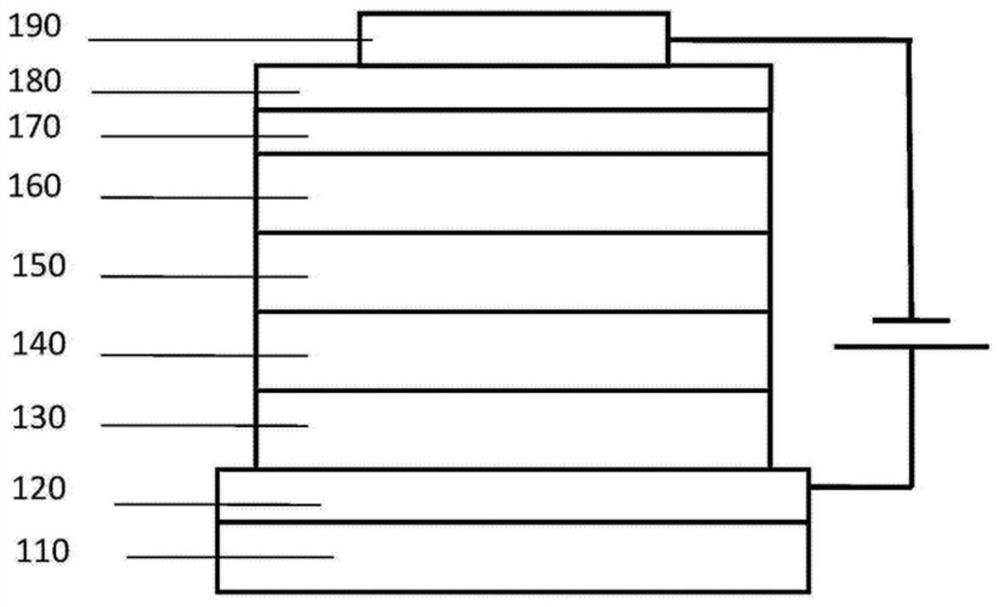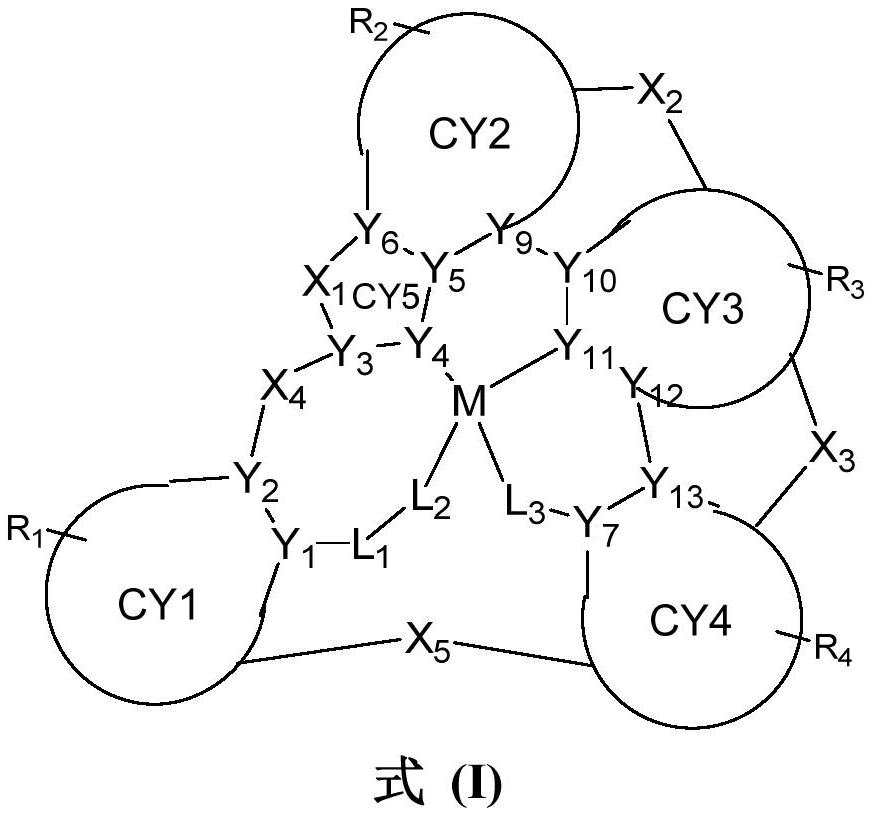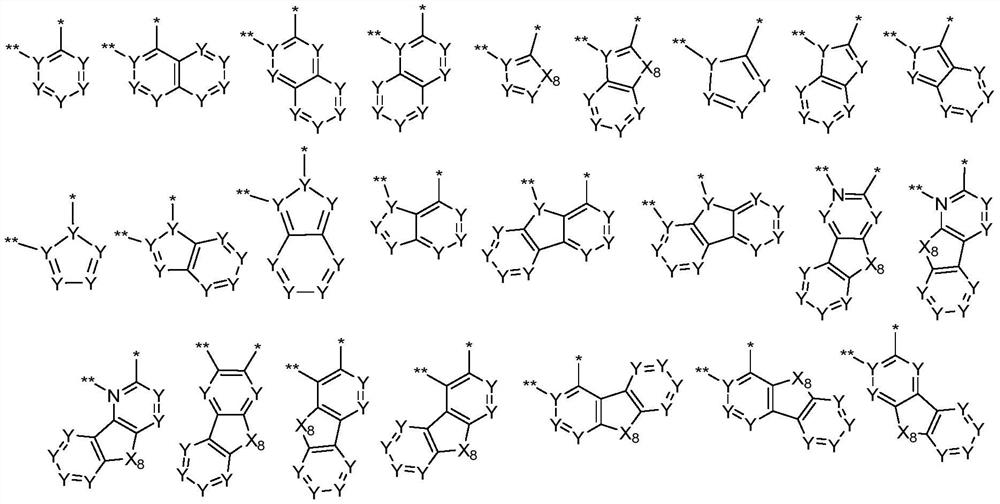Organometallic complex and organic photoelectric element containing the same
A technology of organic metals and complexes, applied in nickel organic compounds, electrical components, organic chemistry, etc., can solve the problems of insufficient crustal content and expensive iridium metal, and achieve excellent luminous performance, high current efficiency, and reduced lighting voltage Effect
- Summary
- Abstract
- Description
- Claims
- Application Information
AI Technical Summary
Problems solved by technology
Method used
Image
Examples
Embodiment 1
[0067] Embodiment 1: the synthesis of compound 1
[0068]
[0069] (1) Under a nitrogen atmosphere, S-1 (10 mmol) and S-2 (11 mmol) were completely dissolved in tetrahydrofuran / water (2:1, 80 ml) in a round bottom flask, and potassium carbonate ( 5 g), tetrakis(triphenylphosphine) palladium acetate (0.1 g), and the mixture was heated to reflux for 10-12 hours. After cooling down to room temperature, add acetic acid (2 ml) and stir for 1 hour, separate the upper tetrahydrofuran layer, filter it with diatomaceous earth, concentrate the solvent in vacuo, and use petroleum ether:ethyl acetate (20:1~2:1) as The eluent was purified and separated on a silica gel column to obtain S-3 (yield 80%), LC-MS, 524.2.
[0070] (2) Under nitrogen atmosphere, S-1 (10 mmol), nickel chloride (10 mmol), and acetic acid (8 ml) were heated under reflux in a round bottom flask for 3 days. After cooling down to room temperature, a yellow solid was obtained by filtration, and purified and separate...
Embodiment 2
[0071] Embodiment 2: the synthesis of compound 2
[0072]
[0073] The synthesis steps of compound 2 are similar to those of compound 1, and the yield of the final metal complex is 68%, LC-MS: theoretical 704.25, measured: 704.2; elemental analysis C: 74.91; H: 6.00; N: 3.97; measured: C :74.96; H:6.13; N:3.92.
Embodiment 3
[0074] Embodiment 3: the synthesis of compound 3
[0075]
[0076] The synthesis steps of compound 3 are similar to those of compound 1, and the yield of the final metal complex is 68%, LC-MS: theoretical 709.25, measured: 709.3; elemental analysis C: 74.39; H: 5.96; N: 3.94; measured: C :74.36; H:5.97; N:3.95.
PUM
| Property | Measurement | Unit |
|---|---|---|
| thickness | aaaaa | aaaaa |
| thickness | aaaaa | aaaaa |
| thickness | aaaaa | aaaaa |
Abstract
Description
Claims
Application Information
 Login to View More
Login to View More - R&D
- Intellectual Property
- Life Sciences
- Materials
- Tech Scout
- Unparalleled Data Quality
- Higher Quality Content
- 60% Fewer Hallucinations
Browse by: Latest US Patents, China's latest patents, Technical Efficacy Thesaurus, Application Domain, Technology Topic, Popular Technical Reports.
© 2025 PatSnap. All rights reserved.Legal|Privacy policy|Modern Slavery Act Transparency Statement|Sitemap|About US| Contact US: help@patsnap.com



